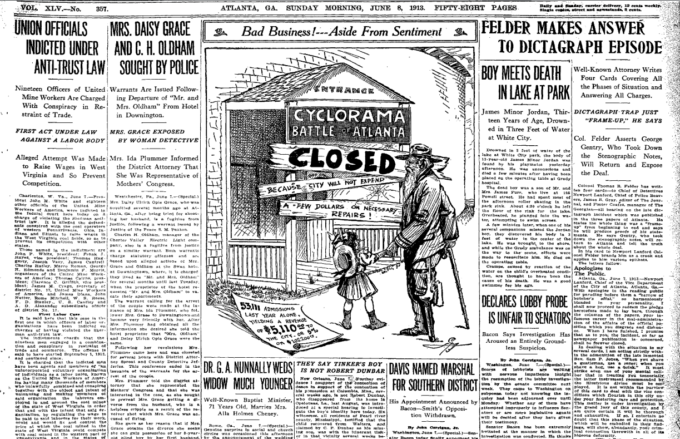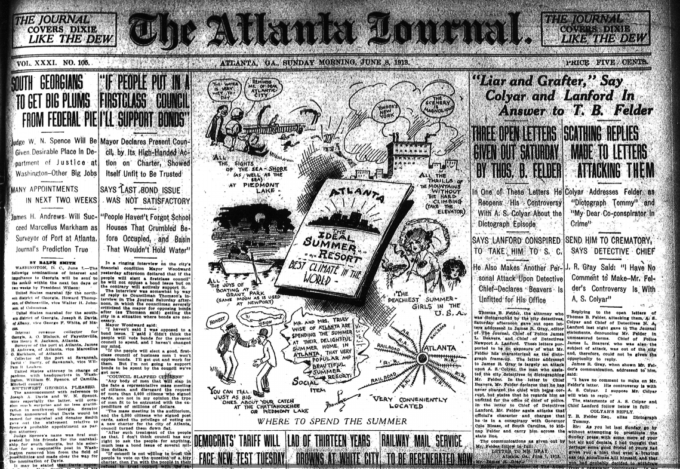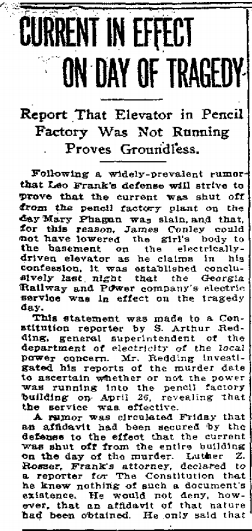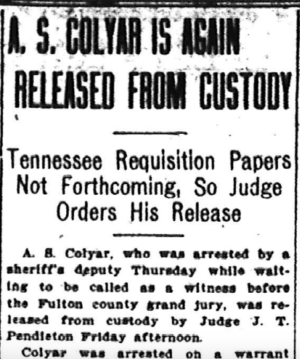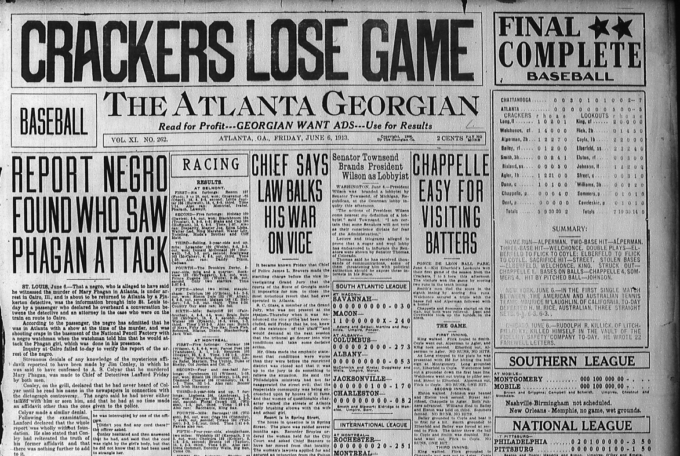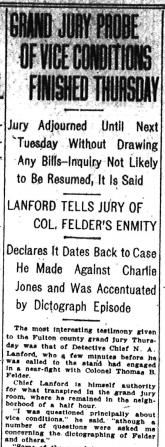 Another in our series of new transcriptions of contemporary articles on the Leo Frank case.
Another in our series of new transcriptions of contemporary articles on the Leo Frank case.
The Atlanta Georgian
Thursday, July 3, 1913
A petition filed Tuesday with the Clerk of the Superior Court by A. S. Colyar, Jr., asking for the disbarment of Colonel Thomas B. Felder from the practice of law in Georgia, has been withdrawn by Colyar on information that he first must submit his petition to the court for the determination of whether his grounds are sufficient to warrant an investigation and trial by jury.
Colyar said Wednesday he would apply for a rule nisi. Until this is done there can be no action on his petition. The petition includes as reasons for the disbarment of Colonel Felder the alleged irregular practices of which Colyar accused Colonel Felder in the sensational dictograph conversations furnished by Colyar to the police.
* * *

 Another in
Another in  Another in
Another in  Another in
Another in  Another in
Another in  Another in
Another in  Another in
Another in  Another in
Another in 

